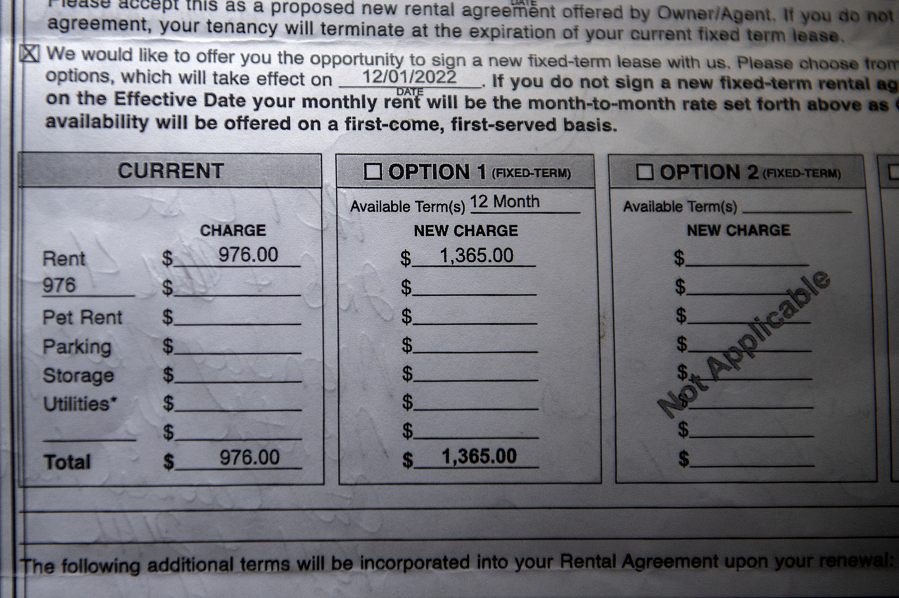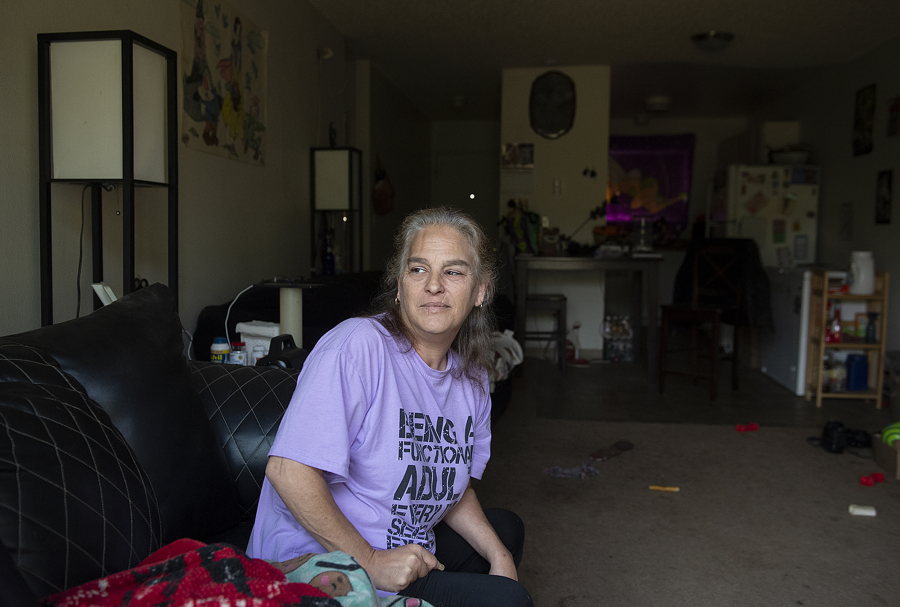If Washougal resident Saree Adams doesn’t pay a $389 rent increase at her low-income Rockwood Terrace apartment beginning in December, she could become homeless, she said.
“I will pay $976 for November. And then bam, right before Christmas, they want me to pay $1,365,” Adams said.
A rent hike of nearly 40 percent at an apartment subsidized by the Low-Income Housing Tax Credit program might seem counter-intuitive. But, while unaffordable for Adams, the raised price is still technically considered affordable, according to U.S. Department of Housing and Urban Development standards.
By HUD metrics, an affordable two-bedroom apartment at Rockwood Terrace can cost up to $1,446 for people earning 60 percent of this metropolitan area’s median income. Clark County’s AMI is $106,500, meaning 50 percent of households within the metropolitan area earn less than the AMI and 50 percent earn more.
When Adams called Aperto Property Management, a California-based corporation that manages Rockwood Terrace, she recalls a staff member telling her to be grateful the rent wasn’t going up to $1,446, since that’s what it could be raised to.
“That’s a really stupid response to, where on earth do you think people are gonna get the money to make this kind of rent?” Adams said.
Some housing advocates in Washington have pointed out the pitfalls of using AMI to price the nation’s affordable housing.
“Area median incomes do not accurately reflect the experiences of people who are the lowest income households in our state,” said Michele Thomas, director of policy and advocacy at the Washington Low Income Housing Alliance. “The lucky few who even get any affordable housing are sometimes being housed in apartments that are still too expensive for them.”
Ten years ago, when Adams first moved into Rockwood Terrace, Clark County’s AMI was $73,000, meaning low-income rents were much lower than today. The increase in AMI over time means some Clark County residents are making more money than before, but it does not necessarily mean Adams or other low-income people are making more.
“Somebody may have been at the 60 percent AMI threshold when they moved in and could afford the rent then,” Thomas said. “But they can’t afford the rent increase because their income’s not changing or it’s not keeping up with inflation.”
Adams receives just $615 per month in disability insurance, she said. “I’m not political. I don’t really care if they’re Democrats or Republicans or angels,” Adams said. “I would just like somebody to start doing something for us.”





